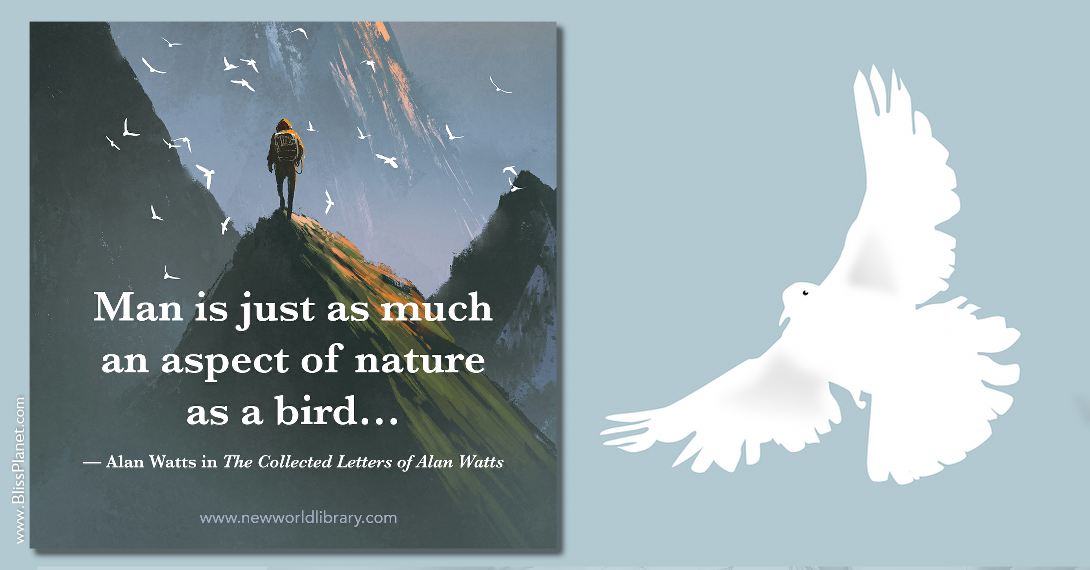edited by Joan Watts & Anne Watts
Newsletter # 2 (1939)
Edited by Joan Watts & Anne Watts
Philosopher, author, and lecturer Alan Watts (1915–1973) popularized Zen Buddhism and other Eastern philosophies for the counterculture of the 1960s. Today, new generations are finding his writings and lectures online, while faithful followers worldwide continue to be enlightened by his teachings. The Collected Letters of Alan Watts reveals the remarkable arc of Watts’s colorful and controversial life, from his school days in England to his priesthood in the Anglican Church as chaplain of Northwestern University to his alternative lifestyle and experimentation with LSD in the heyday of the late sixties. His engaging letters cover a vast range of subject matter, with recipients ranging from High Church clergy to high priests of psychedelics, government officials, publishers, critics, family, and fans. They include C. G. Jung, Henry Miller, Gary Snyder, Aldous Huxley, Reinhold Niebuhr, Timothy Leary, Joseph Campbell, and James Hillman. Watts’s letters were curated by two of his daughters, Joan Watts and Anne Watts, who have added rich, behind-the-scenes biographical commentary. We hope you will enjoy this excerpt from the book.
Newsletter #2
These letters are now being sent out twice every month to various people who are interested in the study and practice of the philosophy of the ancient East from our modern, Occidental point of view. As I said in the first letter, there are a number of us already meeting regularly at my apartment to discuss these matters on the basis of informal lectures, and those who would like to join us will always be welcome if they will let me know in advance when they would like to come. Further details of our meetings are at the end of this letter.
A question, which we often discuss, is the relationship of modern, civilized man to nature. For, seemingly, those of us who are city dwellers are in rather a different position from the great philosophers of the Orient who never had to live in our “artificial” world of steel, concrete, automobiles, telephones, and canned food. Our life and circumstances are almost purely man-made (or so we think), and there are many people who believe that we can never achieve any great degree of spirituality until we return to a closer contact with nature. For the laws of the spirit are the laws of nature, and it is thought that while our lives are ordered on a purely human basis, while every advance of our science is directed to the conquest of nature and while we try to solve all our problems by the exercise of unaided human reason, in such conditions we shall always be lonely, unhappy orphans (or prodigals), shut off from the true source of life. But this idea is both true and false, false because the idea that we are independent of nature is a tremendous conceit, and true because we are, relatively speaking, divorced from nature by that very attitude. Strictly speaking, New York City is no more artificial than a bird’s nest, for man is just as much an aspect of nature as a bird and the difference between man and bird is chiefly that man is somewhat more complicated. A secondary difference is that man is self-conscious; he believes himself to have an ego, a separate, self-contained, self-directing entity which has to figure things out for itself, whereas the bird just lets nature or instinct take care of its problems. But nature is powerful and when man disagrees with it he feels his loneliness and impotence; this is the great unhappiness. The Buddhists call it sakayaditthi, or the “heresy of separateness,” which is another name for being “taken in” or fooled by the sense of selfhood.
While we are thus fooled we are caught in the conceit that we are very peculiar people, having a secret pride in our loneliness and isolation and an open pride in the wonderful achievements of our unaided reason and intellect. But are we so lonely? Might it not be that our self-conscious ego and its power of reason is a device, a trick (maya), employed by nature to achieve certain results? Nature arranges for us to feel that we are separate selves in order to manifest aspects of natural power for which the animal is not equipped. Thus, it is most important that we should have this feeling, provided we are not fooled by it. Two things are therefore involved. On the one hand, if we are to be true to nature, we have to behave whole-heartedly as if we were separate selves; on the other hand we have to recognize that self-consciousness and rationality are devices making it appear that we live our lives, whereas in fact nature lives them under this disguise. Selfhood means that nature is playing at being lots of different, separate, and self-ruling beings.
In truth, however, there is no absolute division between the self and nature. Nature plays at being a self, but without this play, without this universe of countless separate objects, there would be nothing to be called nature; there would only be a void. Selves and nature are essential to each other, and in truth neither one is master, for when the self acts, nature acts, and when nature acts, the self acts. The initiative appears to come sometimes from one, sometimes from the other, but this is appearance. If you ask, “Which of the two comes first? Which is master?” the answer is a very old conundrum, “Which came the first, egg or hen?”
When this absolute and unavoidable interdependence is known and felt in the very depths of one’s being, then you have what Oriental philosophy calls the realization of unity with Tao or Brahman, which it describes as understanding that the self and the not-self are two appearances of one fact which cannot be known apart from its appearances.
This and other aspects of Oriental philosophy are the subjects of informal lectures and discussions at my apartment to which all are welcome provided they let me know beforehand when they would like to come. There is no fixed charge for admission to those lectures as they are supported by purely voluntary contributions. We are now meeting every Monday at 8:30 pm, every Thursday at 3:15 pm, while on Monday, November 13th, we shall start another regular meeting at 3:15 pm, and another on Wednesday, November 15th, at 8:30 pm. In the meantime I shall gladly welcome and answer any comments on these letters if those who write would be so kind to enclose a stamped return envelope.
~ Alan W. Watts, New York City, November 10th, 1939
Alan Watts (January 6, 1915 – November 16, 1973) was a British-born American philosopher, writer, speaker, and counterculture hero, best known as an interpreter of Asian philosophies for a Western audience. He wrote over 25 books and numerous articles applying the teachings of Eastern and Western religion and philosophy to our everyday lives.
Excerpted from the book The Collected Letters of Alan Watts. Copyright ©2018 by Joan Watts and Anne Watts. Printed with permission from New World Library — www.newworldlibrary.com






